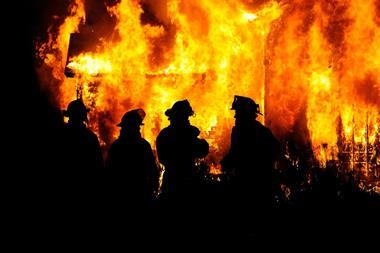In September, petrol shortage became as emotive an issue as having no bread or water. Peter Power reviews the lessons.
It started with some irate lorry drivers in France and ended up nearly bringing the UK to its knees In September, petrol shortage became as emotive an issue as having no bread or water. Peter Power reviews the lessons.
The fuel crisis caused significant losses for some companies. The ensuing disruption affected virtually all. What can we learn from it? In late 1999, most of us were drawing up detailed plans to cope with the impact of Y2K. One of the main threats was that of fuel supplies being disrupted by massive computer failure - or so we assumed. Months later, the impact was the same, yet the original plans to cope had, it seems, long since been forgotten. Perhaps they should be brought out and made ready again.
Car sharing still seems largely taboo in this country. By plotting where people live and the best route into the office, it should be possible to encourage it. Some time ago, the law changed to allow passengers to pay running costs to a driver, without the risk of negating his or her insurance by driving "for hire or reward". Prioritise business functions. As part of business continuity planning, you should have done this in any case. It may be possible to close down certain functions for a defined time, especially if they use finite resources, such as fuel. Apply lateral thinking to the use of all resources. For example, one enterprising chief executive of an NHS trust worked out that he could spare a certain amount of diesel from the main generator tank. He made this available to HGV drivers who were willing to deliver key supplies and subsequently leave with a full tank for their efforts. Don't rely on haulage companies' own reserves. One of the more surprising elements of the disruption was the realisation that the road haulage industry holds much lower fuel stocks than it used to, even though 90% of Britain's goods deliveries are made by road. The industry typically only holds between two and five days (maximum) stock at any one time. If you are going to do something unpopular, time it right. There were several examples of poor business timing and very poor public relations, such as some oil companies' announcements of higher fuel prices. This news prompted protesters to reinstate their blockade at Coryton refinery. Many people have suggested what is, perhaps, an obvious thought. Each time a TV station displayed a map of the country's oil depots and refineries, it gave protestors (and potentially economic or political terrorists) useful information. Should we give all details away in a crisis? The vulnerabilities of applying "just in time" operating practices (JIT) were exposed when stock ran out much quicker than might have been expected. While it makes sense not to have capital tied up in vast warehouses full of stock these days -and thus rely on frequent deliveries from suppliers -you must also calculate the risks of supply interruption.* Don't scaremonger. It is so very easy to start a panic. For example, the suggestion by a Welsh radio station that the strike was about to resume led to queues forming at petrol stations across the country within hours.
Last, but definitely not least, understand and practise the basics of crisis management. It is possible to demonstrate that a well-handled crisis can actually increase share value. There is a little used, but very accurate, Finnish motto: "Olemme onnistuneet, jos meita moititaan liiasta vouhottamisesta" (better said after a good dinner with plenty of wine), which translates as "We will have succeeded if afterwards they blame us for making too much fuss about this." How true.
--
Peter Power is managing director of crisis management specialists Visor Consultants Ltd., ( ). He was the author of the Department of Trade & Industry's guide booklet "Preventing Chaos in a Crisis".


















